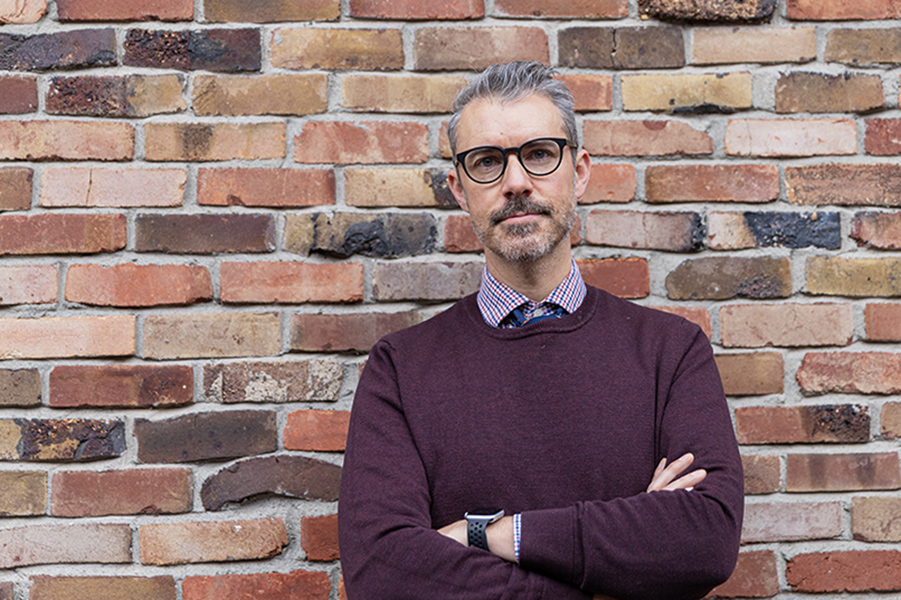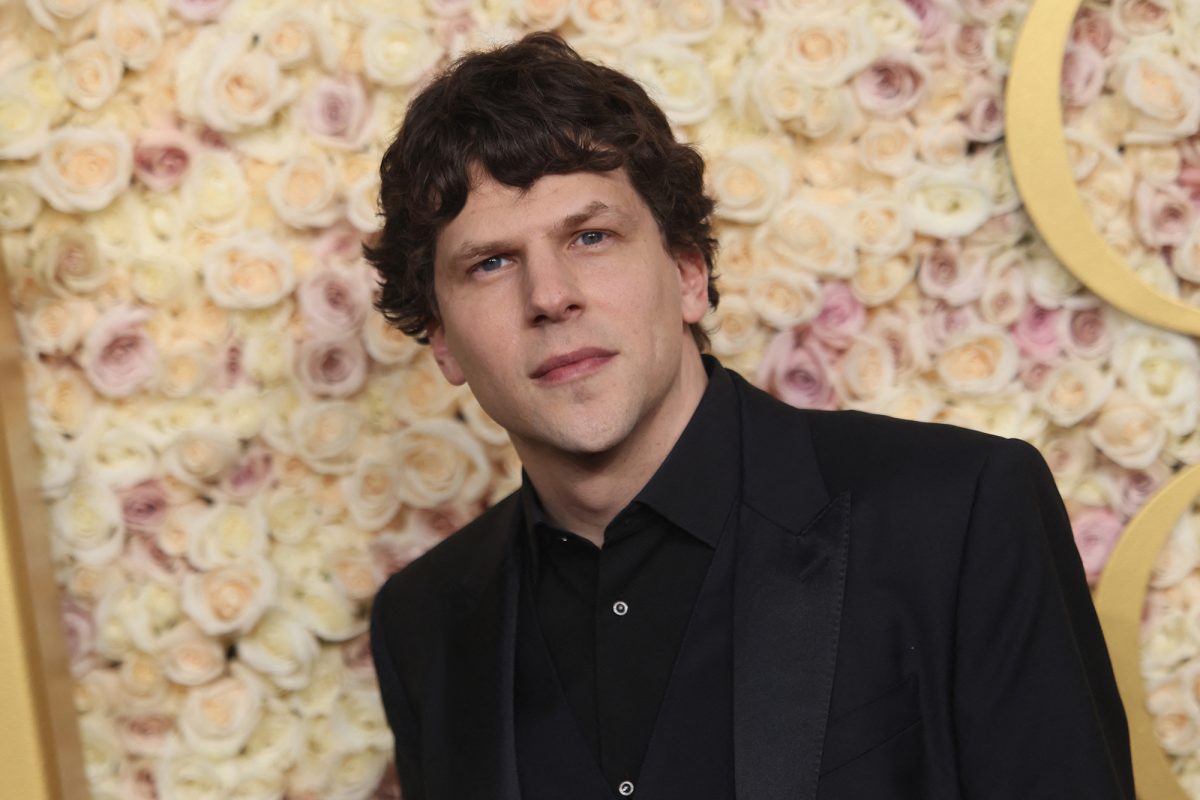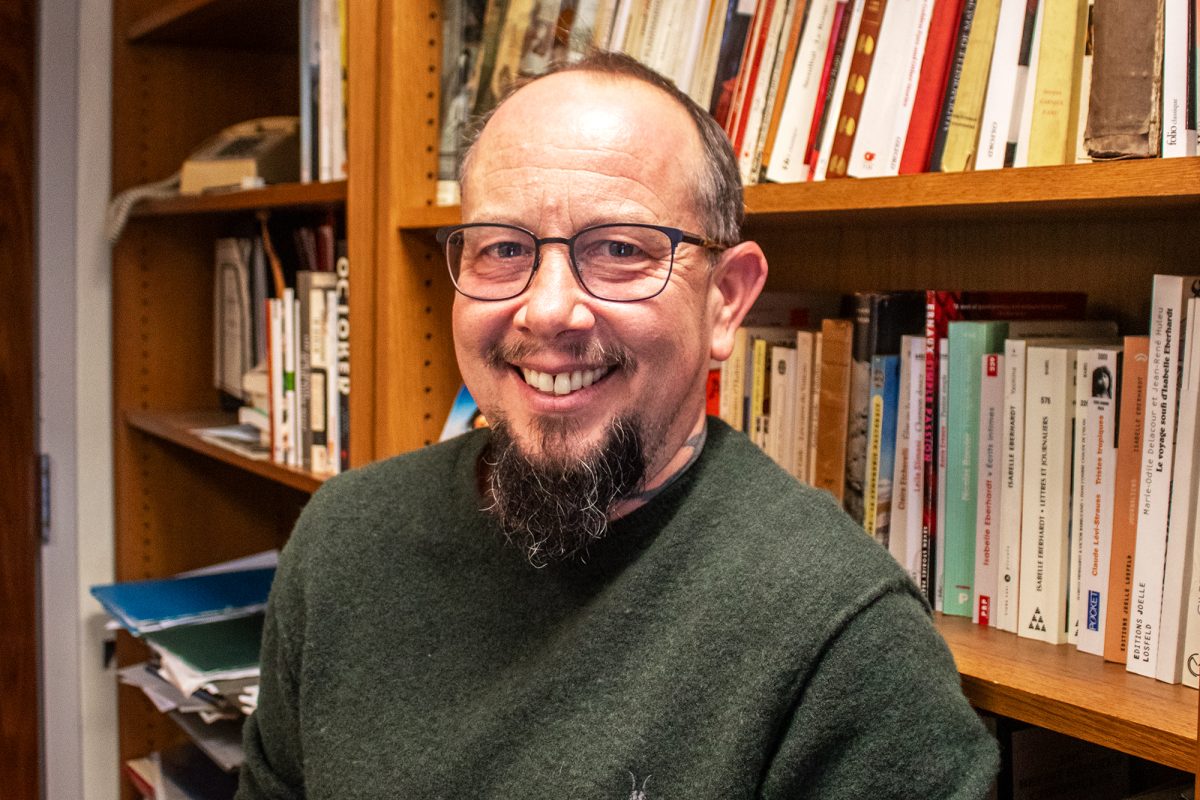Chris Holmes, associate professor and Chair of Literatures in the Department of English, has been a superfan of Nobel Prize-winning author Kazuo Ishiguro for nearly 15 years. Holmes recently met his literary hero, as he was selected by the Rose Theatre in London to author a Playbill essay for the stage adaptation of Ishiguro’s novel “Never Let Me Go.” Holmes hopped across the pond to attend the premiere and feature in the play’s press junket Sept. 25 alongside Ishiguro and other contributors.
“Never Let Me Go” was first adapted for the screen in 2010. The film stars Andrew Garfield, Carey Mulligan and Keira Knightley, directed by Ithaca College’s Mark Romanek ’81. The novel was adapted for the stage by British playwright and actor Suzzane Heathcote, well-known for her work with the television series “Killing Eve.”
Life and Culture editor Georgie Gassaro spoke with Holmes to discuss the honor of being selected for this project and learn how his studies of Ishiguro’s work have influenced his teaching philosophy as an educator at Ithaca College.
This article has been edited for length and clarity.
Georgie Gassaro: “Never Let Me Go” seems like such an intriguing, science-fiction story about human cloning. How would you describe the plotline to someone who has not heard of it before? What would be your elevator-pitch for audiences to read it?
Chris Holmes: My pitch for it is that it comes across as kind of a boarding school novel, but it’s a surprise that it ends up being, at least in part, about clones. It begins as a story of three friends who are in a very unusual boarding school. … But, slowly, there’s a simmering unease underneath everything happening, so you feel like something is coming apart at the seams, and then it is revealed that their purpose is to donate their organs so that the rest of the non-cloned population can live extraordinarily longer and healthier lives. It’s truly the story of trying to come to terms with what it means to die for someone that you’ll never meet. “Never Let Me Go” is one of the best high school or college-aged experience books I’ve ever read. You could throw out the clone stuff, and it gets to the feelings of vulnerability and security and being so full of love for your friends.
GG: You have a published essay titled “On Rereading Kazuo Ishiguro.” In what ways has your process writing this essay fit into the ideas discussed in that essay?
CH: It was really interesting to try and go from a very micro form –– when you’re writing an academic book and you’re talking about a particular novel, you’re really focusing on wording and phrasing and form and things like that –– to go very macro. There was a big change in how I had to reread the book and rethink how I encountered it when I first read it for pleasure. It was a very nice thing to re-encounter it.
GG: Will the press night be the first time you meet or interact with Ishiguro at all?
CH: Oh yeah. I have never even been in the same room as him. I’ve never seen him give a reading or anything. It’s sort of blowing my mind, but I’m trying to stay sane about it.
GG: Do you have any ideas as to what you will first say to him?
CH: I don’t even know how to address him, because he’s a knight of the realm. He’s a sir, Sir Kazuo Ishiguro. I don’t know what I’m going to say to him, I just hope that I don’t just fumble around and look like an idiot because I’m such a fan. I’m glad that I’ll get a chance to meet him and thank him for what his work has meant to me over a long time now. Almost 13 years, I’ve been writing about him more than anybody else, and I just want him to know how much that has meant to me. He doesn’t ever need to read the book that I wrote. But I just hope that he’ll feel happy that lots of people are writing about his work.
GG: How does Ishiguro compare to other authors and screenwriters you encounter in your work as a literature professor?
CH: His style is very different from almost everybody else that I study or teach or write about. There’s an infamous line from a review from The Guardian that’s something like, “Reading ‘Never Let Me Go’ makes you want to drink, run a marathon, do drugs and have sex just to feel more alive than the characters in it.” I don’t agree with it, but there is an understatedness to the way that emotion happens in Ishiguro, which for me, is more tense and kind of eerie. It never feels boring or slow or anything like that. But it’s definitely a very distinct style, almost kind of affectless, even when terrible things are going on. There is a distinct and specific outburst of pain and sorrow in “Never Let Me Go,” but it’s so unusual that it’s twice as impactful because it’s not the norm within his style.
GG: How has your own education and experiences like this contributed to your work as a professor at Ithaca College?
CH: I had a lot of imposter syndrome, even as I was getting my graduate degrees. I really felt like I was pulling one over on everybody and that somebody would find out that I didn’t belong there, and sort of usher me out. One of the things I try and do with Ithaca students is really make it clear to them the talents that they have and the things that I can see brewing, even if they’re not fully formed yet. I try and make it so that if I can tell someone has a writing inclination –– even if they’re not necessarily a good writer yet but they want to play with language and build something about an argument or thinking and writing –– I really try and encourage them to not feel like they’re faking it. It’s a process in which you grow through that process, and in that growth you can achieve great things. College is not a time for you to already be fully formed. You’re supposed to learn and grow and have experiences of letdowns and failures, but also have people who really prop you up.
















